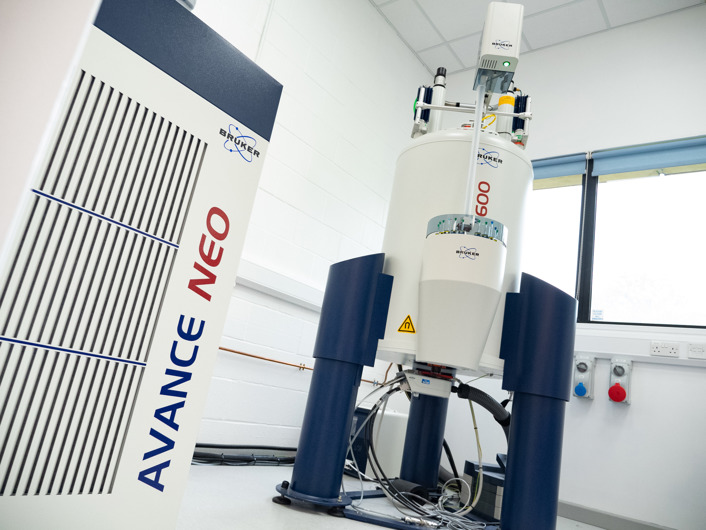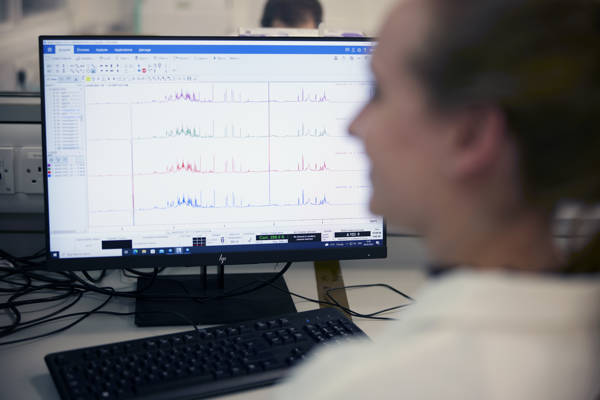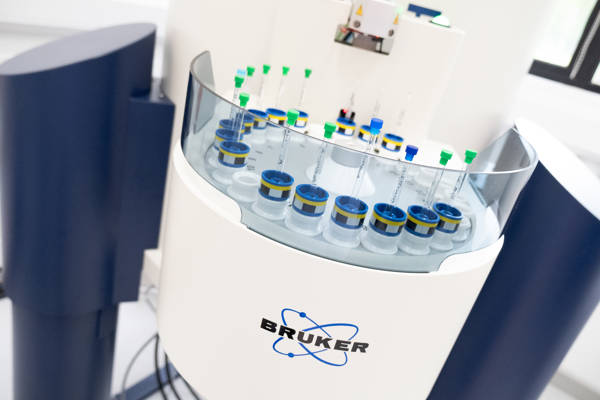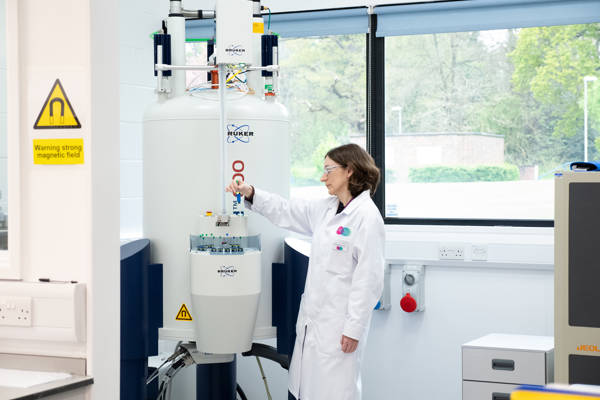Our approach
At RSSL, we have extensive experience using nuclear magnetic resonance (NMR) spectroscopy as a method of determining the purity of new synthetic small molecules. Although the technique is commonly used for structure elucidation of small organic compounds, NMR has a huge potential to provide quantitative information, even within complex mixtures.
Strengths of NMR include an intrinsically linear response meaning there is no requirement for a calibration curve or conditioning prior to measurements, making it suitable for automation and allowing high-throughput analysis. Furthermore, only a small amount of sample is required (as little as 2 mg). This was a factor we had to take into consideration as only a very limited amount of the sample was available for analysis. If required, method verification or validation can be performed, depending on client’s requirement.





